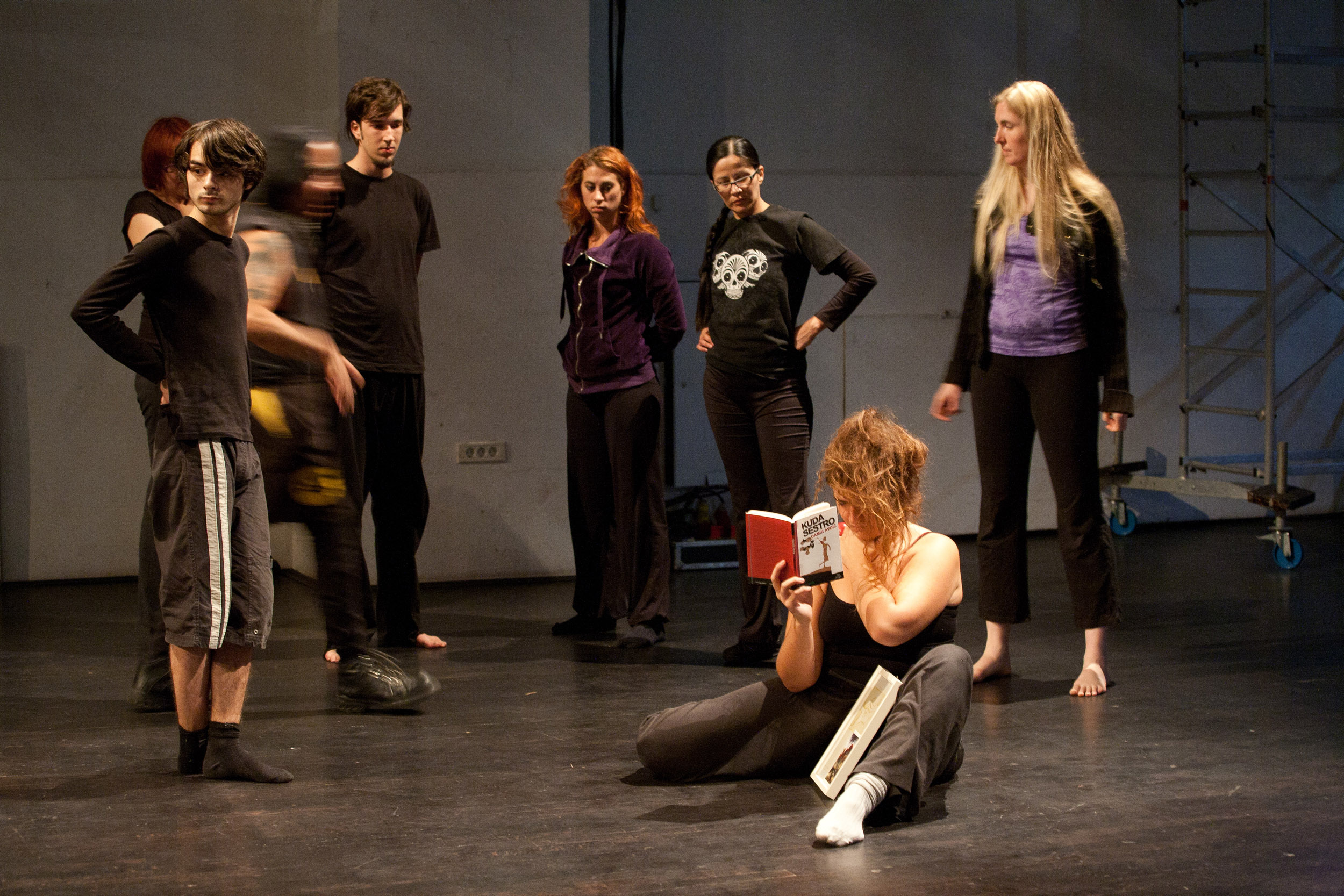-Everyone was looking for a new cultural paradigm and a new sense of belonging.
-Eventually performance pedagogy gave the answers we were looking for.
-In the vision, the classroom/workshop would become a temporary space of utopian possibilities,highly politicized, anti-authoritarian, interdisciplinary, multi-racial, poly-gendered and cross-generational for participants.
-However there was a question of: How could we adapt our method to the institutionalized and highly supervised environment of the university classroom without compromising its core?
-The new generation of students we sophisticated are aware of gender and racial politics.
-Participants despite their sophistication, they lacked commitment, consistency, and ethics.
-There were challenges working with young participants. How could a pedagogic praxis be engaging, sexy, and highly performative?
-After traveling across borders while leading workshops it brought up other questions: How does the method change when it crosses cultural borders? Which performances make it or not and why?
-In 2005 a "performance summer school" was decided on with students from multiple borders coming to collaborate in experimental art forms.
-This extended laboratory gave participants the chance to experiment with new material.
-Participants are able to discover the political, poetic, sensual, and spiritual possibilities of performance as well as connection to their everyday lives.
-The aim is for the exercises to enable the ability to generate new and stimulating performance material by bringing delicate matters to the surface.
-We truly hope that individuals join us in this shared project by becoming a practitioner and reconceptualizer of ideas and suggestions.


Retrieved from: www.emanat.si
Retrieved from: www.aspaceforliveart.org
-To stretch emerging artist, helping them to sharpen and develop their performance and analytical skills in dialogue with like-minded cultural radicals.
-To develop new models for relationships between artists and communities, mentors and apprentice, which are neither colonial nor condescending.
By: Robert Lopez II
No comments:
Post a Comment